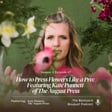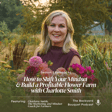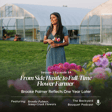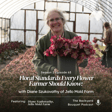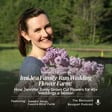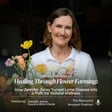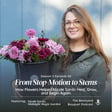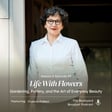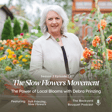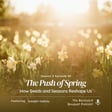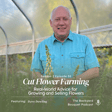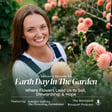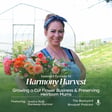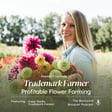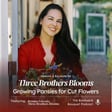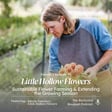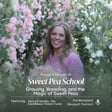
Ep.9: Growing Specialty Cut Flowers For Florists With Heather Cain From Petal Pink Flowers
Do you want to sell your flowers to florists but don't know where to start? In this episode of the Backyard Bouquet Podcast, hear from local flower farmer, Heather Cain of Petal Pink Flowers about her experience selling specialty cut flowers to local florists. Heather shares her journey of building relationships with florists and the importance of communication in the flower farming business. She also gives valuable insights into the process of growing and selling specific flowers, such as lisianthus, stock, and phlox. Join us as we dive into the challenges and joys of selling to florists and learn from Heather's expertise in the field.
As a flower farmer, Heather understands the unpredictable nature of the business and the need for flexibility and problem-solving. She shares her experiences with weather-related challenges, such as a heatwave and an ice storm, and how she has adapted her farming practices to overcome these obstacles. Heather also highlights the joy of involving her children in the farm work and the valuable life lessons they have learned through their involvement. Listen now to this episode to gain valuable insights into the world of selling specialty cut flowers to florists and the rewards and challenges that come with it.
In this episode, you’ll hear about:
- 00:01:26 - Heather Kane's introduction and background
- 00:05:31 - Growing flowers in Eugene, Oregon
- 00:08:46 - Building relationships with local florists
- 00:12:08 - Weekly availability sheet for florists
- 00:14:36 - Choosing which flowers to grow
- 00:19:05 - Seed starting process in a water heater closet
- 00:20:19 - Challenges faced during extreme weather conditions
- 00:25:02 - Growing snapdragons and dealing with rust
- 00:26:24 - Spring flower subscription model
- 00:32:14 - The joy of growing daffodils and tulips
- 00:35:56 - Challenges and lessons learned in flower farming
- 00:40:13 - Moments of joy in flower farming
- 00:49:38 - Involving children in flower farming
- 00:54:03 - Advice for parents on involving kids in farm work
Learn more about Heather Cain and Petal Pink Flowers
- Petalpinkflowers.com
- Follow Petal Pink Flowers on Instagram: @petalpinkflowers
***Rate, Review, & Follow The Backyard Bouquet***
If you enjoyed this episode, will you please consider leaving the podcast a review? Your review helps make the podcast more discoverable to others and allows me to continue creating more episodes. I'd love to know what you enjoyed most about the episode.
New episodes every Tuesday to keep your garden blooming!
JOIN THE BACKYARD BOUQUET COMMUNITY ON FACEBOOK
https://www.facebook.com/groups/cutflowergardening
Sign up for my newsletter: https://thefloweringfarmhouse.myflodesk.com/nlw4wua8s3
The Flowering Farmhouse: Instagram | Facebook | Pinterest | Website
